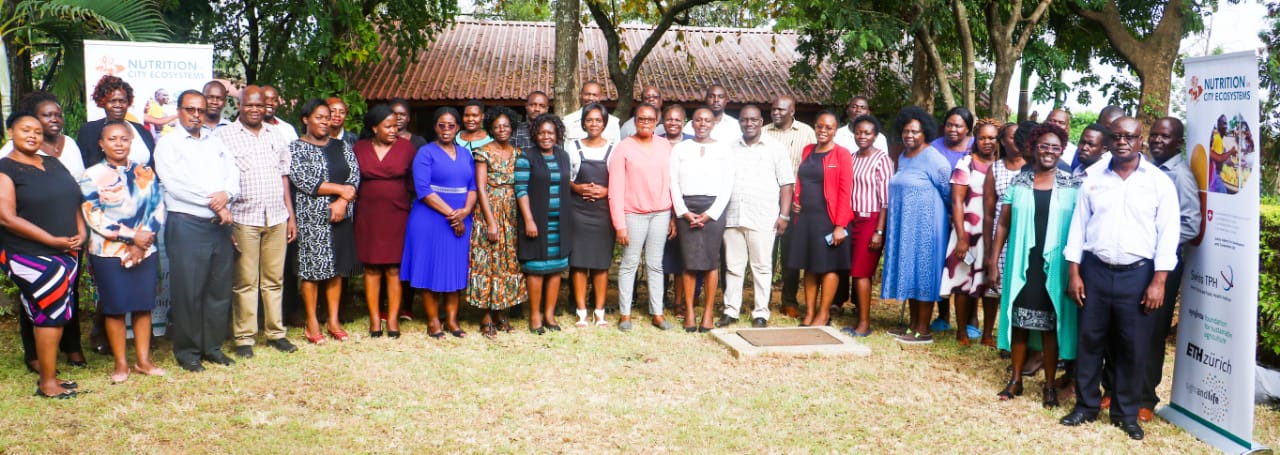- Category: Blog Post
Reflections from Lindy Binder and Bledar Meta, YPARD Albania Country Representative
During 18-19 April 2023 Bledar Meta, country representative of YPARD Albania, and an ambassador of COCOREADO project, was part of the European Training Event on Smart Innovation for Small-Scale Producers Accessing Markets.
The event was organized as part of COACH, a Horizon 2020 project aimed at strengthening collaborative agro-food chains. At the training in Copenhagen that brought together small-scale farmers, public food procurers and policymakers, we agreed with Bledar, it would be useful for YPARD and COACH to share some information from this event and the wider COACH project.
Connecting small-scale farmers to the public plate makes sense for a number of reasons: food is fresh and seasonal; it doesn’t have to travel far, and buying from local farmers supports the local economy. Choosing sustainable local food not only benefits the environment, but also has health benefits for everyone: from children at school to the elderly in their care homes.
Using public procurement in this way is one type of short supply chain, but there are others. The EU regulation (1305/2013) defines a ‘short supply chain’ as a supply chain involving a limited number of economic operators, committed to cooperation, local economic development, and close geographical and social relations between food producers, processors and consumers.
COACH project has sought to find different examples of collaborative agro-food chains to share their practices more widely. These ‘beacons’ of good practice from all over Europe have been showcased in our Living Library. Below are two examples:
The Nyíregyháza Basket Community in Northeast Hungary – is a civic network that links local producers with local consumers via an online platform and physical pick-up point in the city of Nyiregyhaza. It was created out of citizens’ need to raise awareness about sustainable food systems and high-quality products. Now, supporting the creation of new community buyer groups, they are considered the Hungarian leader in supporting small scale farmers and businesses.
This example demonstrates how communities are able to come together to influence where their food comes from, to support their local farmers, and eat healthy even if public policy does not yet support this type of food system.
The City of Ghent desired to purchase food from local small-scale farmers. However, when a government body makes purchases, the law on public procurement must be respected. 'Local’ does not legally fit within the public procurement law because suppliers must be given equal access to compete for a contract. On the other hand, a public authority must be able to compare offers and choose the most economically advantageous tender.
By using the term short-supply-chain, the City of Ghent was able to reach out to suppliers who produce closer to home, to avoid distortion of the competition, and to strive to pay a fair price to the farmer/producer.
In order to have successful short-chain procurement, it is essential to collaborate with the various actors involved in food production. Given the administrative burden that a public contract entails and the large volumes required, the City of Ghent set up a contract that purchases through supplier platforms which bring together SME producers/farmers in an online shop where the producer/farmer themselves determine the selling price. The platform provides for ordering, delivery, and payment flow, and also carries out the logistics.
The policy is overseen by the municipal council, which regulates everything that is of municipal interest within the territory of Ghent.
Ghent’s success was only possible because of legal expertise to understand and navigate the existing European legislation that protects the open market. As well as bringing together key actors in short food supply chains, COACH employed a legal expert to train public procurement officers on this very process to help them open their tenders to small-scale farmers, including:
- Breaking up tenders to be under threshold
- Sharing big orders with other farmers
- Market dialogues
All this learning has been collated into a free Toolkit or legal guide for public procurers.
Alongside working with existing legislation, COACH has produced policy briefs – including one aimed at local governments (Good public policies can ensure producers really benefit from Short Food Supply Chains) and another aimed at EU lawmakers (Free school meals sourced from small-scale farmers: a win-win approach for food systems transformation).
Another element of COACH was to help existing short-food supply chains quantify the costs and benefits of their project against a more traditional benchmark supply chain. The work done offers a better understanding of the consequences and impacts on economic, social, and environmental aspects coming from participating to Short Food Supply Chain (SFSC) initiatives. If you are part of an SFSC initiative, you may like to use our free app to self-assess it.
We are excited about sharing the COACH project with YPARD. We hope that through its young professionals’ global network, YPARD members can orient Short Food Supply Chains in the right direction with innovative solutions that respond to the global food challenges in the most effective and sustainable way. As the COACH project draws to an end, we hope the YPARD network and similar organizations continue to strengthen partnerships among stakeholders in and between short food chains by fostering networks for cooperation, co-creation and innovation. We hope the materials collected by COACH will be useful for YPARD members who provide policy recommendations based on existing policies, and influence sustainable food production and consumption by assessing the environmental, economic and social impacts of short food supply chains and their role in a circular economy.
------
This article represents the views of the authors and does not represent an endorsement by YPARD. YPARD does not take responsibility for the content of affiliate links.




